Meet the high school sport that builds robots — and the next generation of engineers
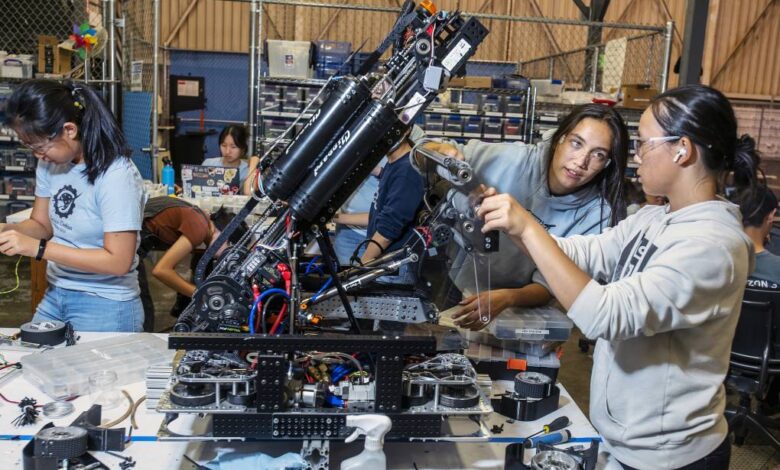
Robotics competitions are nothing new, but over the last few years, the FIRST Robotics Competition has evolved from a fascinating after-school activity to having a real impact on the tech and engineering world, and colleges are catching on.
“We like to see evidence of project-based learning, working in teams, hands-on experience and that sense of discovery,” says Jennifer Cluett, dean of admissions at Worcester Polytechnic Institute. In 2022, WPI added a custom question to the Common App, asking about students’ experience in competitive robotics. Cluett says 218 of 1365 enrollees in WPI’s freshman class this year have participated in FIRST.
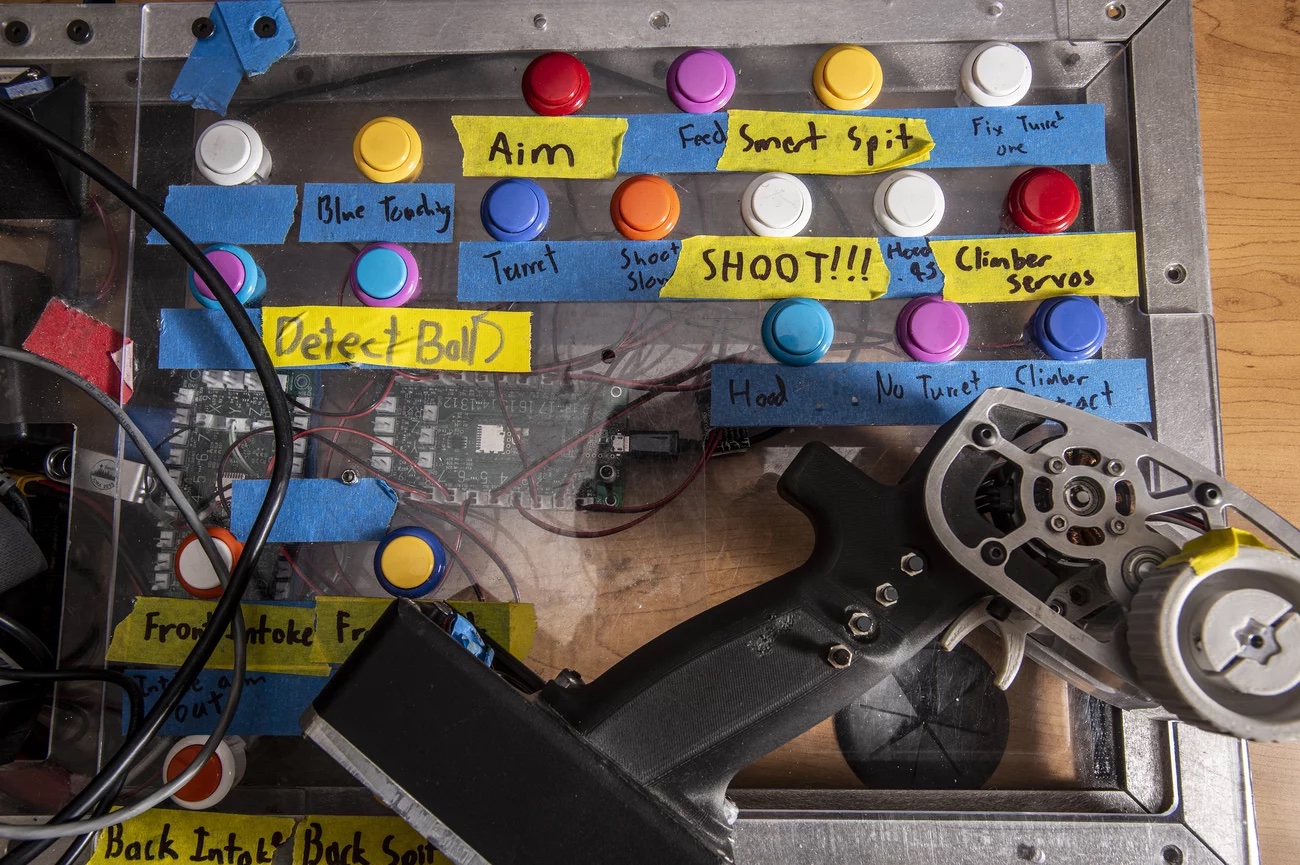
“I was just blown away by these students and their robots, with team logos and t-shirts and buttons, sponsors and cheering sections. It was like Texas high school football,” says Jonathan Hoster, associate admissions director at the Syracuse College of Engineering. Two years after he first saw a tournament in 2014, Syracuse earmarked ten scholarships for FIRST alumni.
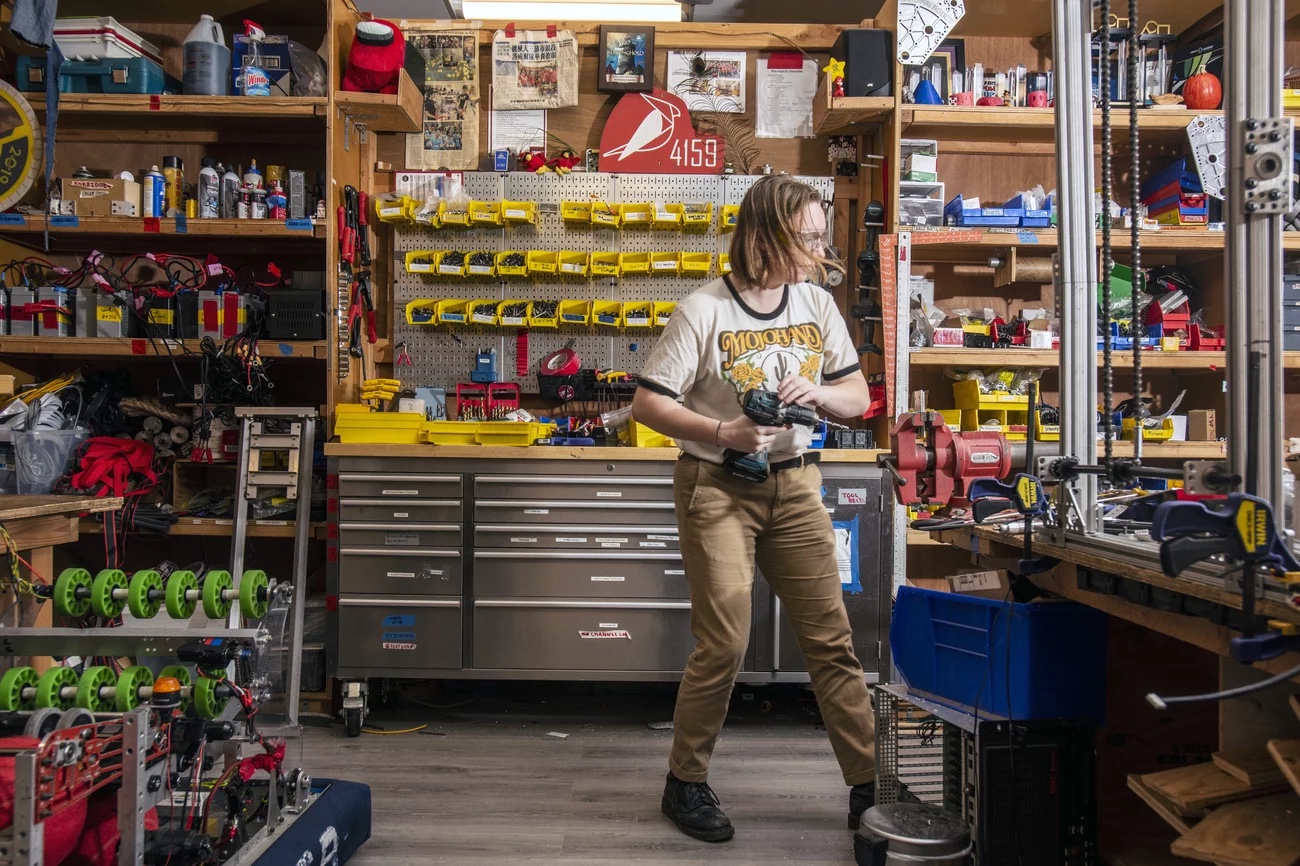
A who’s-who list of FIRST sponsors — including Boeing, Dow, Coca Cola, Amazon, FedEx, Johnson & Johnson, Apple, Ford, and Disney — shows how eager big businesses are to prime the pipeline. Demand for workers in fields like automation and connectivity, against recent declines in engineering college graduates, makes a resume showing multiple years of hands-on high school robotics increasingly desirable in corporate America.
“Traditionally we would look very heavily at a college GPA. But increasingly companies are looking for more well-rounded employees,” says Jody Howard, vice president of innovation and emerging technology at Caterpillar Inc. “What’s so interesting about FIRST is that, while they may be coming out with robotic or programming skills, it’s really the teaming and problem-solving that make them stand out.”
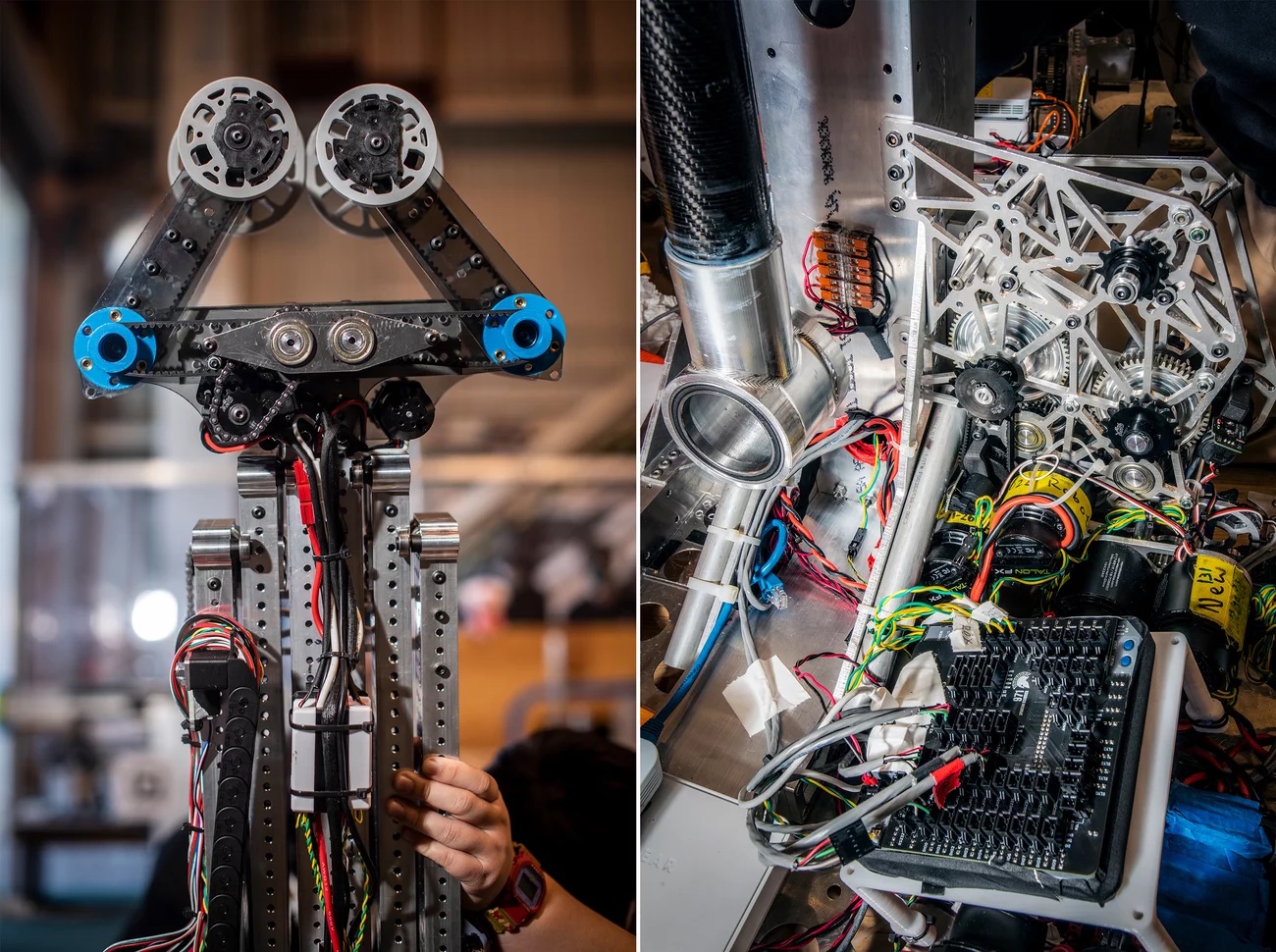
Howard compares a FIRST team scrambling to put a damaged robot back into the fray with a Caterpillar on-site service engineer cooperating with a client to rush one of their autonomous mining trucks back on line. “They already have experience going through the process under pressure,” she says.
Lara Fernando is a senior leader on Team 971 Spartan Robotics at Mountain View High School, in Mountain View, Calif. — a few miles from the Space Cookies. Two years ago, she was hired as a paid intern at agricultural technology startup FarmX. “I was the youngest person in the building, 15 years old, and the first woman there. From robotics I already had the skills to be there with the college engineering majors — soldering circuit boards, assembling sensors, running 3D printers.”
Besides providing capable personnel, high school FIRST teams may also contribute tech back to the industry, from debugging open source code to coming up with innovative rapid prototyping approaches. At a higher level, engineers who mentor Spartan Robotics say John Deere’s weed-killing agribots now use an AI framework originally created for the team’s 2017 robot to climb ropes and fire Wiffle Balls.
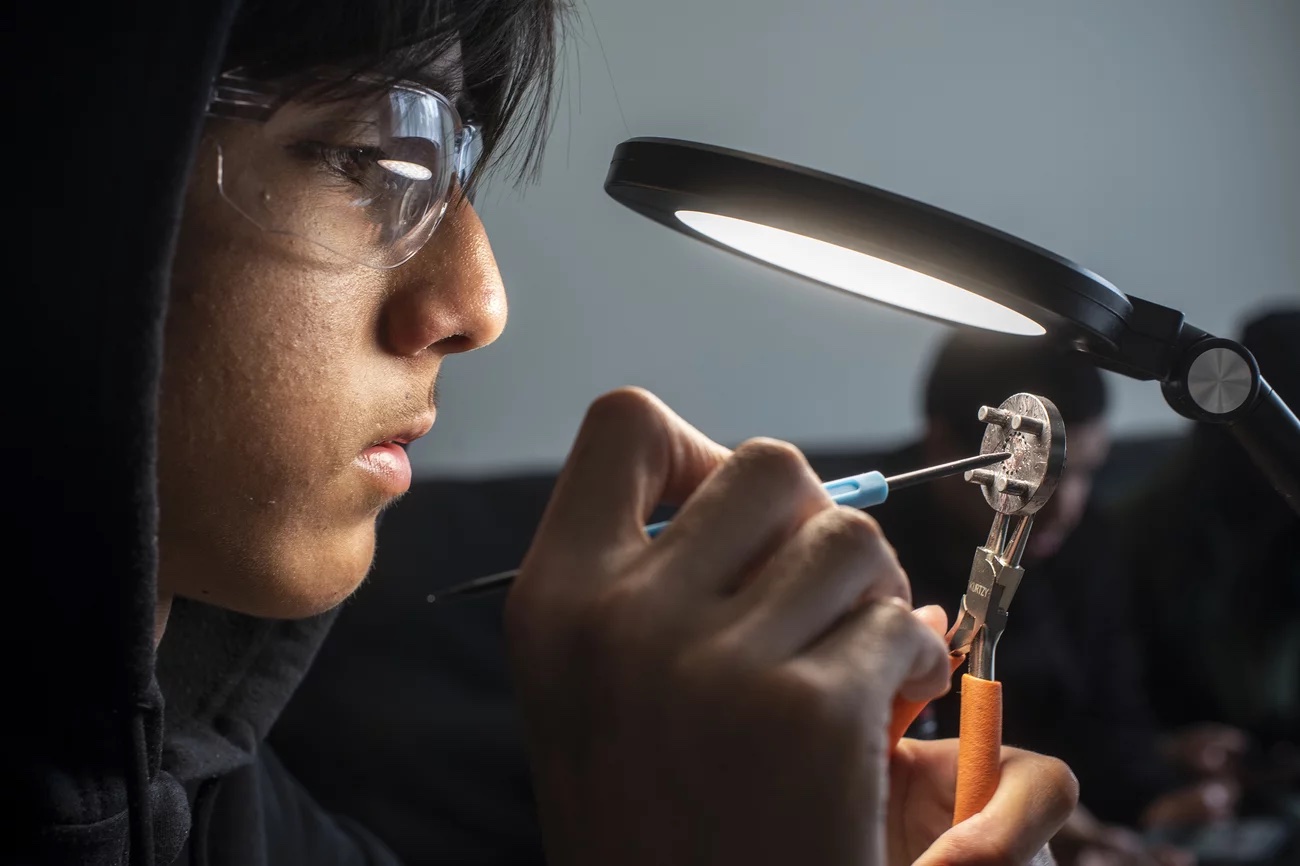
As impressive as these contributions may be, gritty problem-solving is a far more central element of the FIRST ethos. Anika Zhou, 16, quit basketball to make more time for design and mechanical work with the Space Cookies. She thinks what sets the robotics team apart from school is, “They let us make mistakes.”
Celien Bill, 17, technical manager for Team 5419 Berkelium of Berkeley High School in Berkeley, Calif., estimates he spent over 200 hours last season tuning their cone launching system. “Getting it to work the first time was super exhilarating. That feeling lasts about 10 minutes … and then you go back to improving.”
“In the long term, winning and losing have about the same benefit — all the benefit is in the process,” says Dirk Wright, lead mentor for Berkelium. “You can’t understate the importance of self-confidence. It opens up a huge amount of opportunities.”
Plus, it’s a lot of fun.
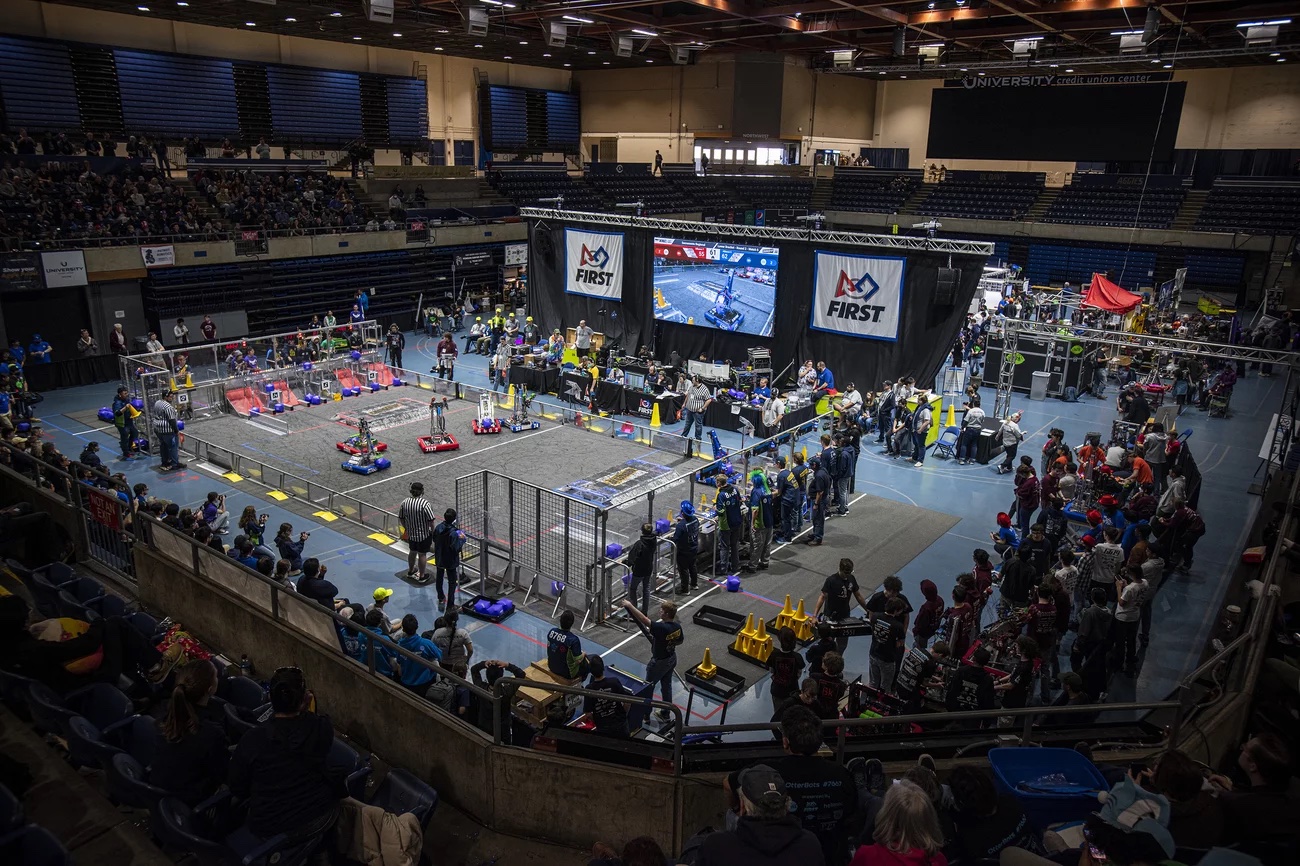
At competitions, there are team flags, zebra-striped referees, huge video screens, people dressed as vikings and penguins, face paint, singalongs to “Sweet Caroline” and parents in funny hats cheering in the stands. There also are hundreds and thousands of other high schoolers in their team t-shirts, roaming between the pit area and playing field, checking out everybody and every machine.
Besides on-field triumph, teams vie for more than 20 other awards, in categories from Rookie All Star to Gracious Professionalism. Only one, the Engineering Inspiration Award, for which sponsor NASA will cover registration fees for the FIRST Championship in Houston, has any real material value. The prestige prizes are the blue gym banners that tournament victors and major community award winners can hang in their workshops.
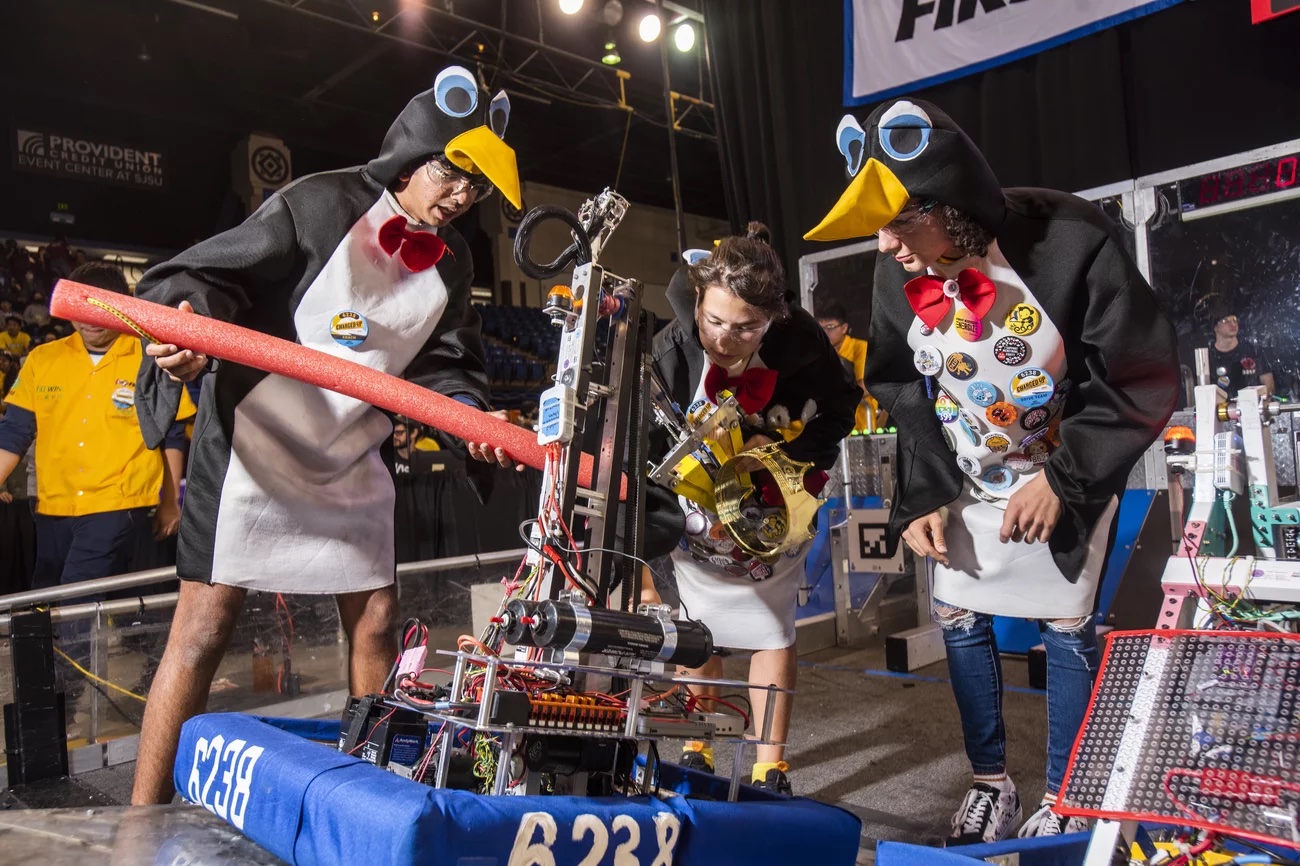
But anybody can take home that warm glow of satisfaction when, in the midst of a big competition, one of their peers walks by, nods and says, “Cool robot.”
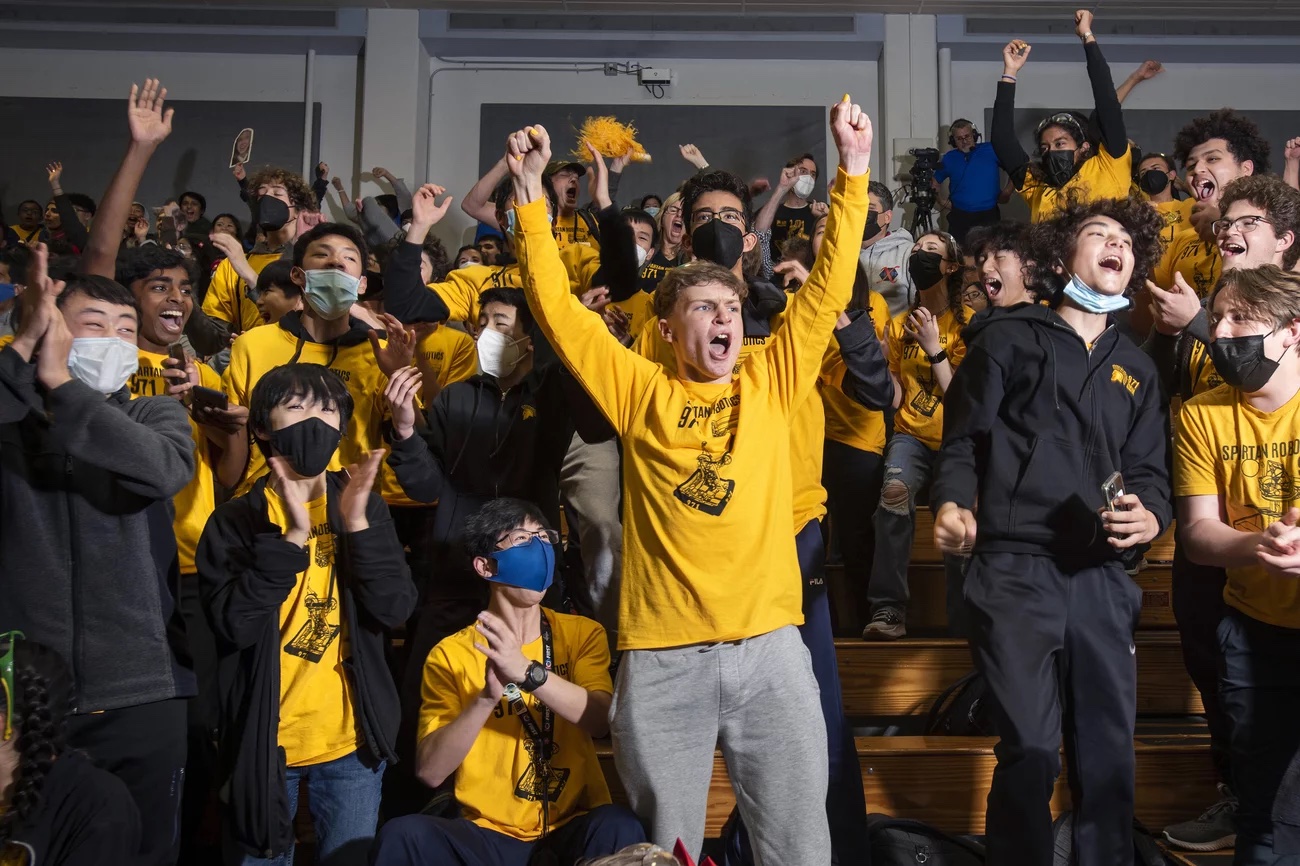
Photos and Reporting by Mark Leong/Redux Pictures
Visual design by LA Johnson



